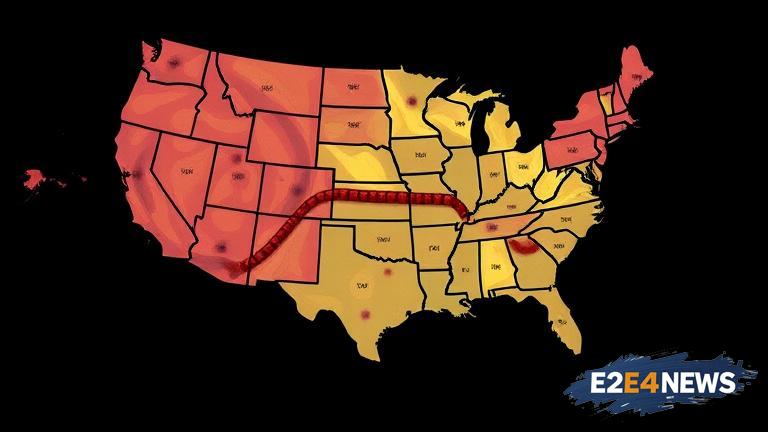A recent report has confirmed the presence of a rare human case of New World screwworm, a flesh-eating parasite, in the United States. This parasitic infection, caused by the larvae of the Cochliomyia hominivorax fly, is typically found in animals, but can also affect humans. The parasite feeds on the host’s flesh, causing severe tissue damage and potentially life-threatening complications. The case was identified in a patient who had recently traveled to a region where the parasite is common. The patient presented with symptoms including severe pain, swelling, and discharge from the affected area. Upon examination, doctors discovered the presence of the parasite’s larvae, which were surgically removed. The patient is currently undergoing treatment and is expected to make a full recovery. The New World screwworm is typically found in the southern United States, as well as in parts of Central and South America. The parasite is usually spread through the bites of infected flies, which lay their eggs on the host’s skin. The eggs hatch into larvae, which then feed on the host’s flesh. The infection can be prevented through the use of insecticides and protective clothing. However, in some cases, the parasite can be spread through contact with contaminated soil or water. The Centers for Disease Control and Prevention (CDC) has issued a warning about the potential risks of the New World screwworm, particularly for people who work outdoors or travel to areas where the parasite is common. The CDC recommends taking precautions such as wearing protective clothing, using insecticides, and avoiding contact with contaminated soil or water. The New World screwworm is a significant concern for public health, as it can cause severe and potentially life-threatening complications. In addition to the human case, there have been reports of the parasite affecting animals, including livestock and pets. The parasite can cause significant economic losses for farmers and animal owners, as well as emotional distress for pet owners. The identification of the New World screwworm in the US highlights the need for increased awareness and education about the parasite and its prevention. Healthcare professionals and veterinarians are urged to be vigilant for signs of the infection, particularly in patients who have recently traveled to areas where the parasite is common. The public is also advised to take precautions to prevent the spread of the parasite, including using insecticides and protective clothing. Further research is needed to understand the full extent of the New World screwworm’s impact on human and animal health, as well as to develop effective strategies for prevention and control. The CDC and other public health agencies are working to monitor the situation and provide guidance to healthcare professionals and the public. In the meantime, it is essential to remain vigilant and take precautions to prevent the spread of this potentially deadly parasite. The New World screwworm is a significant public health concern that requires immediate attention and action. By working together, we can prevent the spread of this parasite and protect human and animal health.
